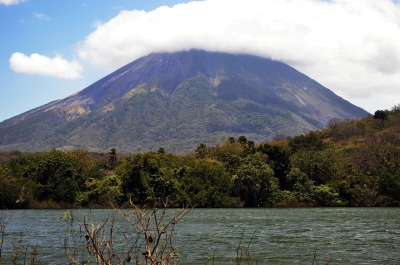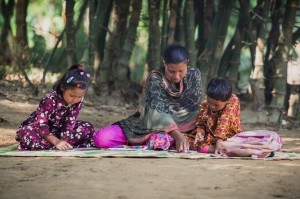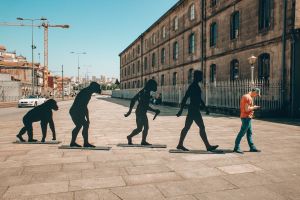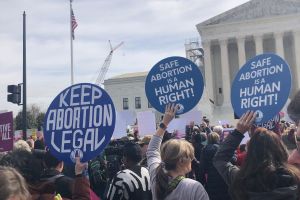Finding hope when 'hard places' become even harder

Two battles are happening at the same time – a battle against extreme poverty and a divisive political battle here in Nicaragua.
As a Nicaraguan-born humanitarian worker here, on staff at the U.S.-based Food for the Hungry, I’m used to serving the daily realities of Nicaraguans living in extreme poverty. But when violent protests broke out, our staff found ourselves literally “in the middle” of the conflict: our office was located right across the street from the university where revolts against the government were brewing.
Since last April, Nicaragua has been in a colossal state of convulsion, when government reform to social security laws enraged the entire population. For many, it was the tipping point after 11 years of divisive government rule. Perhaps, the most alarming thing was how the conflict simmered, and then exploded overnight. Nicaragua used to be the safest place in Central America. There was relative peace for the past 30 years, since the last war in the 1980s between the Contra and Sandinista political parties. In fact, Nicaragua had become a promised land of sorts, enjoying a booming economy with tourism, private investors bringing in money, a healthy employment rate, and abounding opportunity for high-quality education. Now, the country is economically devastated, on the verge of recession with skyrocketing unemployment; and just like any country where sociopolitical conflict erupts, the most marginalized are the ones who suffer the maximum consequences.
The thought of my baby girl growing up in such a dark environment breaks my heart. But I know now more than ever, I must remain here because the need is great and I know that hope remains.
Our staff has had to learn how to continue our humanitarian work amidst political revolt. There is a town called Quilalí, nestled in the mountainous region where a lot of Nicaraguan coffee is grown. Quilalí is impoverished, boxed-in from major markets by its mountain geography, and a prime example of how marginalized communities are at even greater risk under the economic repercussions of conflict.
One of our staff introduced the idea of starting a savings group in Quilalí, shielded from the impacts of the tanking Nicaraguan economy. Fifteen residents representing merchants, industry partners, entrepreneurs with small businesses, and farmers joined together last November—right around the time the U.S. began to impose punitive sanctions on Nicaragua. Municipal authorities do not generally get personally involved in our programs, but even the municipal mayor of Quilalí joined in, seeing how this savings initiative offered an opportunity for families to battle economic insecurity.
We helped this savings group set up policies, a standard savings cycle, loan interest rates, and profit sharing as members began to build a culture of savings and access to financing. Certainly, we knew God was on the move among those we least expect.
Thankfully, no one from FH has been injured or killed, and we’re creating contingency plans to ensure safety and security among our staff as we continue to work diligently with families affected by this conflict. We know we are more than just “field staff”— we are community change agents, starting with changing fatalistic worldviews, instilling hope, and helping communities apply biblical principles in practical ways that help to seed sustainable development. We emphasize that violence or stealing won’t advance progress. We practice active listening when individuals express their concerns and fears. And we remind our brothers and sisters that God has taught us that through history, governments don’t last forever. Authorities come in and out of power. I know that this conflict is not about the impacts on my family, nor the economy of the country, but about how God is reviving his nation. His will prevails at the end of the day.
Amid the chaos, FH Nicaragua and my family have been kept under His mercy and grace. We have been empowered not only to fight poverty in the hard places but to seek God’s light and find hope amid chaos in these dark times.




























